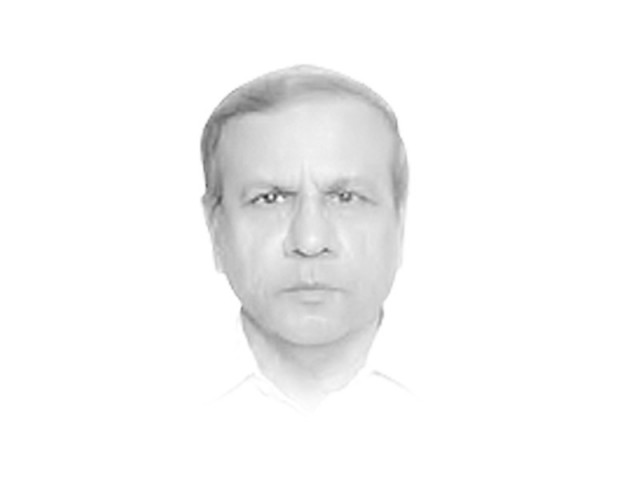Wages of neoliberal sins
The brigades that have marched on Islamabad are primarily young, urban and educated — largely from central Punjab.

Wages of neoliberal sins
Whether the size of the marchers was a million, a hundred thousand or 10 thousand is irrelevant. The fact is that thousands responded to the leaders’ call and each marcher on the road to the capital can be said to represent at least 20 people in his/her family, relatives, friends and associates. They and their motivations cannot be ignored.
The immediate demands of the two leaders are indeed poorly defined, rapidly shifting and seemingly illogical. However, the basic message that both leaders are conveying and which has found resonance among their followers is a sense of isolation from the economic and political processes in the country, the abject lack of responsiveness of state establishments and the consequential erosion of faith in executive, legislative and judicial institutions. This implicit message cannot be ignored.
The Constitution of Pakistan willed a welfare state; a country that would be caring of her people. Contrarily, however, the political and economic philosophy that has dominated governance in the country for over more than a quarter of a century is in complete contradiction to the core principles enunciated by the framers of the basic law of the land.
The blight of neoliberal ideology descended on the country in the late 1980s and has taken a heavy toll since. The ideology is soulless and devoid of compassion, with stark messages. To the poor: if you cannot afford to eat, it is your problem. To the sick: if you cannot afford healthcare, that is your problem. To the young: if you cannot afford quality education, it is your problem. The state has no obligation towards you except to tax you so that debt obligations to international creditors can be honoured.
The state has, in a defacto sense, withdrawn from responsibilities to the general public, who now face a severe shortage of housing and where rents are high, public transport is worse than cattle carts, and students go to public universities and earn degrees that are not worth the paper they are printed on. More crucially, there are no jobs; certainly not the kind of jobs that a young, educated urban woman or man would aspire to.
For more than a decade and a half, the economy has experienced a ‘jobless growth’. A small coterie, manipulating the stock exchanges, financial and foreign exchange markets, and land and commodity markets, have been amassing wealth. However, these markets do not create jobs. Manufacturing, which can create jobs, is being killed with excessive taxation and non-business costs: bribes and bhatta. Official statistics do present a glowing picture, but it is just that: a pretty picture.
From the 1990s, the state of affairs affected the poor and the lower middle class. Unemployment stared them in the face. They saw wealth in the hands of a few — the ‘burger class’ — and themselves — the ‘bun kebab class’ — excluded from the distribution of spoils. The response of the youth therein was to turn towards militancy — ethnic, religious and sectarian — and plain crime — car hijackings and phone snatchings, house robberies, extortion and kidnappings for ransom. Terrorist groups and gangs proliferated and terror attacks and gang warfare became a daily staple.
Punjab had seen rapid economic and employment growth under the Zia regime in the 1980s. In central Punjab, large swathes of the population moved to cities and villages became urbanised. Every second house became a workshop. The middle class grew to sizeable proportions. At the upper end, educated professionals were finding new avenues. There was hope. Post-1990s, the growth momentum failed to continue and surpluses for distribution have not grown in line with the growth of the Punjabi middle class. And growing competition has edged out a large section of the elite. The intra-elite economic and political rivalry in Punjab is at the root of the present crisis.
In a classic Marxian paradigm, the crisis has now reached the middle and upper classes — ‘the burger class’. The brigades that have marched on Islamabad are primarily young, urban and educated — largely from central Punjab. The youth see their own prospects stagnating, despite the visible abundance of wealth around them, but in the hands of a narrow band of elite families, who remain in power irrespective of changes in regimes. Educated and facing potential unemployment, they feel excluded. Hope has turned into despair and the Imran Khans and the Tahirul Qadris are voicing their alienation.
It is time the state responded to their concerns, buried the ogre of neoliberalism, abandoned the mindless privatisation mania, prioritised job growth, and took responsibility for the welfare of its citizens. The stock market, financial market and land market mafias that have acquired a stranglehold over economic policymaking will have to be excised and productive sectors, particularly manufacturing, prioritised. Otherwise, the anger of the youth will actually boil over to tear apart every institution of the state.
Published in The Express Tribune, September 30th, 2014.
Like Opinion & Editorial on Facebook, follow @ETOpEd on Twitter to receive all updates on all our daily pieces.















COMMENTS
Comments are moderated and generally will be posted if they are on-topic and not abusive.
For more information, please see our Comments FAQ